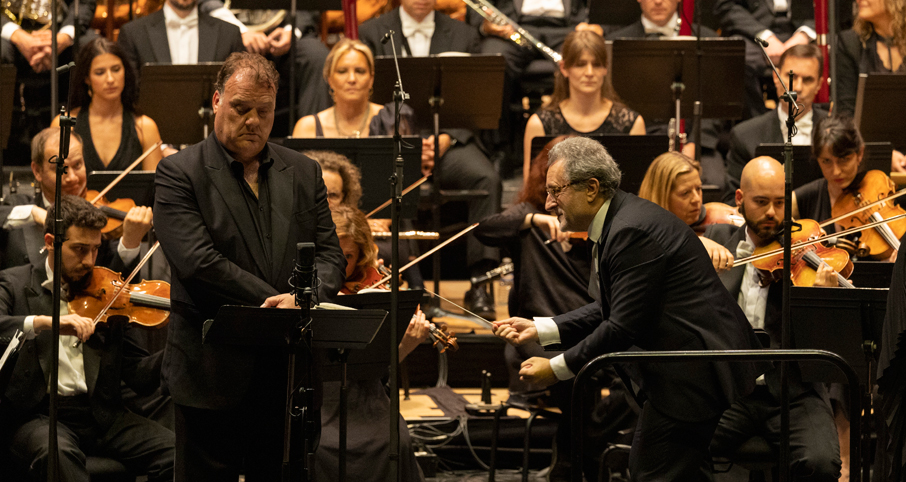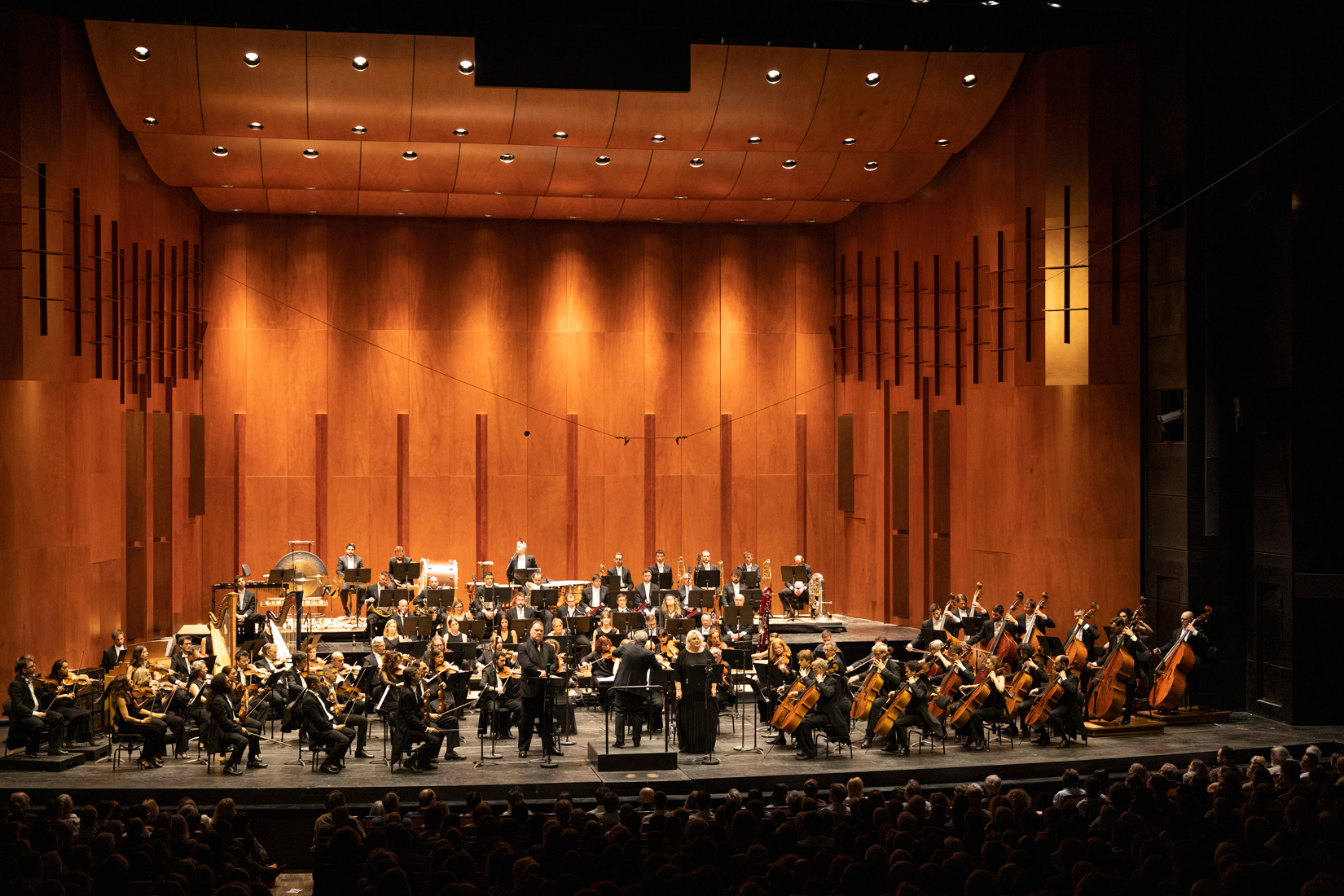
After the success achieved during the visit that the Gran Teatre made to the Opéra national de Paris in June 2023.
- Béla Bartók's masterpiece, a genuine thriller for its dramatic intensity, will once again grace the stage of the Liceu with its musical director at the podium, Josep Pons, reenacting the success achieved during the visit that the Gran Teatre made to the Opéra national de Paris in June 2023.
- Bluebeard, considered as a theatrical reflection of the notorious Jack the Ripper, comes to life with a colossal score and is inspired by a tale by Charles Perrault that speaks of loneliness, lack of communication, and even mental health.
- Baritone Nicholas Brownlee will portray the enigmatic and bloodthirsty husband killer, while mezzo-soprano Victoria Karkacheva will play Judith, a fascinating and enamored woman who leaves home to follow the ogre.
- Written in 1911 and premiered in 1918, this lyrical drama is a true interpretative and theatrical challenge that takes the audience through a dark and mysterious castle, with seven doors revealing the past of a Bluebeard hiding unspeakable secrets.
- Bartók's opera arrived at the Liceu in 1954, sharing the program with Honegger's oratorio Jeanne d'Arc au bûcher, starring actress Ingrid Bergman and directed by Roberto Rossellini.
- The opera is offered in a single concert performance on Friday, April 12, with the support of the Fundación Telefónica.

Barcelona, April 2, 2023. The Symphony Orchestra of the Gran Teatre del Liceu under the leadership of its titular conductor, maestro Josep Pons, made a successful debut at the Opéra national de Paris in June of last year. At the helm was none other than the opera in one act by Béla Bartók, Bluebeard's Castle (A kékszakállú herceg vára), considered one of the first masterpieces of 20th-century lyrical repertoire. That unforgettable Parisian visit will now be reprised on the stage of La Rambla, always with maestro Pons leading the symphonic ensemble of the house, in an evening that brings back the opera by the Hungarian composer to the Liceu, where it has not been performed since 2008.
Premiered in 1918 in Budapest, its arrival in Barcelona in 1954 was transformed into a major event, as it shared the program with the scenic oratorio Jeanne d'Arc au bûcher by Honegger, starring actress Ingrid Bergman directed by her husband, Roberto Rossellini. Bluebeard's Castle is Bartók's only opera, a disturbing and mysterious work that, with a colossal and tremendously demanding score, tells a story that can be described as a true thriller, as its main character, Duke Bluebeard, is considered a theatrical reflection of the notorious Jack the Ripper, with the difference that in the opera, the victims are not prostitutes but the successive wives of the protagonist...
Based on the tale Bluebeard by Charles Perrault, Bartók transforms the plot into a lyrical masterpiece thanks to a monumental, demanding, virtuosic, and very difficult to perform score, both for the orchestra and for the two unique vocal soloists who bring the protagonist couple to life. The original story, published in 1697 in the collection Les Contes de ma mère l'Oye, partly recreated the figure of the serial killer Gilles de Rais, a sadistic and disturbed nobleman who fought alongside Joan of Arc and was accused of murdering hundreds of children and being a worshiper of the devil. The libretto of the opera is signed by the poet, playwright, and film critic Béla Balázs, who paints a portrait of a character torn between schizophrenia and the unconscious, taking up a plot that, among others, the composer Paul Dukas touched upon in his opera Ariane et Barbe-Bleue (1907), with a text by Maurice Maeterlinck.
Bartók proposes a journey full of symbolism into the mind of the enigmatic Bluebeard, alongside Judith, his new wife who has just arrived at the castle of a man who has captivated her and whom she follows confidently. The woman, warned not to ask questions, finds herself in a mansion with seven locked doors that arouse as much curiosity as her sinister husband, and the composer's music, with the use of different tonalities for each of the doors, transforms it into a journey full of tension. Bartók imbues his composition with melodic lines full of contrasts that delve into the subconscious – Josep Pons describes it as "psychological music" – and are part of the nationalist movement that characterizes the work of the Hungarian composer.
Completed in 1911, the score premiered at the Budapest Opera on May 24, 1918, without success, which led the author to revise it several times until reaching the definitive version in 1938, when it was received with enduring success. The Liceu includes it again in its programming – absent since 2008 – in a single concert performance on April 12, featuring the solo interpretations of the American bass-baritone Nicholas Brownlee, winner of, among other competitions, the Hans Gabor Belvedere Singing Competition, and the Russian mezzo-soprano Victoria Karkacheva, who made her debut at the Gran Teatre in the 2022/23 season with Gustav Mahler's Symphony No. 3.
With the support of:

